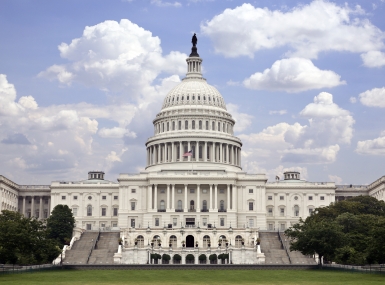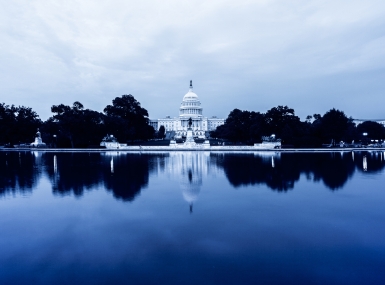Muni bonds measure heads to White House
Upcoming Events
Related News
The Economic Growth, Regulatory Relief and Consumer Protection Act - good for counties - moves on to the White House for president's signature
On May 22, the U.S. House of Representatives passed S. 2155, the Economic Growth, Regulatory Relief and Consumer Protection Act, which is now headed to the president’s desk for his signature.
A provision in the bill — Section 403 — is particularly beneficial to counties because it reclassifies municipal debt as a High-Quality Liquid Asset (HQLA). Under current law, banks are required to meet a Liquidity Coverage Ratio (LCR) to ensure each bank has enough liquid assets in the event of financial stress. By classifying municipal securities as a Level 2B asset, required to account for at least 15 percent of a bank’s total stock, banks will be further incentivized to invest in these bonds. This change Muni bonds measure heads to White House would make municipal debt more attractive to investors and banks, keeping the demand for municipal bonds high and interest costs of issuance low for counties and other issuers.
Tax-exempt municipal bonds are used to finance the construction of and repairs to infrastructure important to counties, including roads and bridges, public transportation, seaports and airports, water and wastewater facilities, electric power and natural gas facilities.
Classifying investment grade municipal securities as HQLA will help ensure low-cost infrastructure financing remains available as municipal issuers continue building the local infrastructure on which our communities and the national economy rely.
Attachments
Related News

County Countdown – Dec. 15, 2025
Every other week, NACo's County Countdown reviews top federal policy advocacy items with an eye towards counties and the intergovernmental partnership.

U.S. Congress passes reconciliation bill: What it means for counties
On July 3, the U.S. Congress passed sweeping budget reconciliation legislation.

U.S. Senate passes amended reconciliation bill text: What it means for counties
On July 1, the U.S. Senate narrowly passed their version of sweeping budget reconciliation legislation.